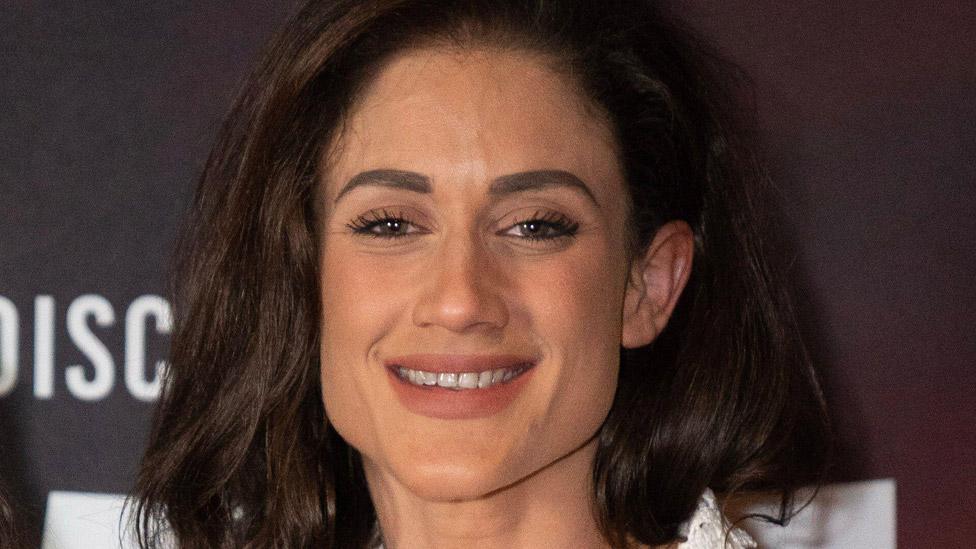Lucy Spraggan: X Factor 'like abusive relationship'
- Published
Watch: X Factor’s Lucy Spraggan describes 'life-altering trauma' during show
Former X Factor contestant Lucy Spraggan has told BBC News that taking part in the show in 2012 felt like being in "an abusive relationship".
She has revealed the reason she left the ITV show abruptly after week three was because she had been raped, and was not ill, as reported at the time.
The singer-songwriter says the industry needs to change to better protect people taking part in reality TV shows.
Both ITV and Fremantle say they are evolving their duty of care processes.
X Factor was made for ITV by Talkback Thames - part of production company Fremantle - and Simon Cowell's company Syco.
Simon Cowell has described what happened to Spraggan as "horrific and heartbreaking".
Spraggan has waived her legal right to anonymity, granted to victims of sexual offences, to speak to the BBC in her first broadcast interview.
In 2012, X Factor was one of the UK's most-watched TV shows and Spraggan became an overnight sensation when millions watched her audition.
"From that moment on, my life changed forever," she tells the BBC.
"From the beginning, they kind of make you into a caricature of yourself. It's almost like there's a storyline written for you," she adds.
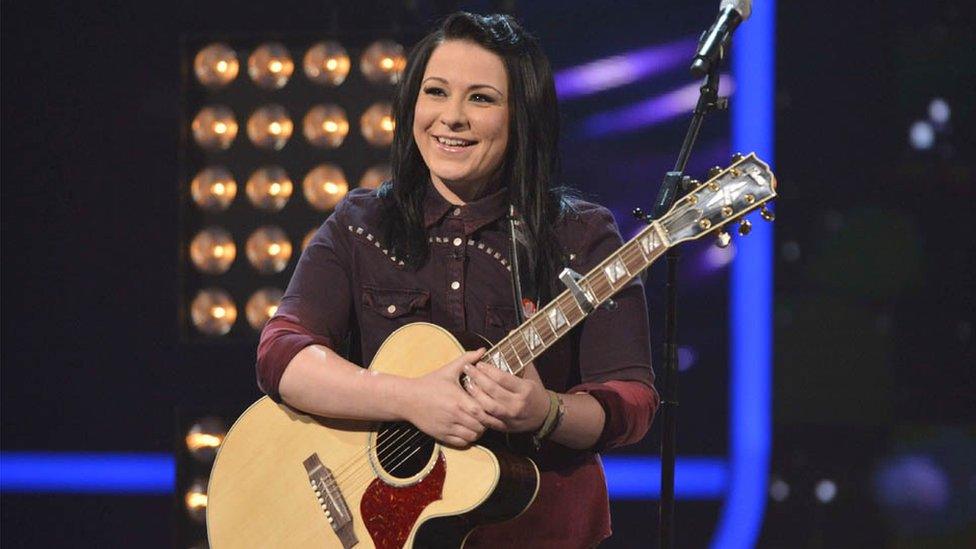
Lucy sang a song she had written herself at her 2012 audition
Spraggan, who was 20 at the time, says the contestants were immediately put under huge pressure.
"From the very first stage that message was reiterated and reiterated and reiterated to the point where that's all you believe - [that] 'this is the biggest opportunity of my life,'" she says.
Now 31, she says she has never since experienced a situation where "somebody completely takes the reins of my life".
"If I had experienced that again, as a normal human being, I would have said that I would have been in an abusive relationship."
Spraggan details her experiences on the show in her new memoir, Process: Finding My Way Through, including the sexual assault.
It happened at a hotel where she and her fellow contestant - the broadcaster Rylan Clark - had been moved to, away from the others.
They had initially been staying at the luxury Corinthia Hotel in central London, where Spraggan says they were guarded by 24-hour security.
She says the show's producers told her the hotel had asked the pair to leave because they were "causing too much trouble". Headlines had branded them "party animals".
"So Rylan and I always sort of were under the impression that we were removed, because that supported the narrative," Spraggan says.
The pair were not given additional security at the new hotel, she adds.


The night they were moved, Spraggan attended Rylan's birthday party at a club in Mayfair.
Spraggan says she can't remember what happened that night and has pieced together the incident through information from the police and others.
She knows she was not conscious - because she had been drinking alcohol at the party - when she was escorted back to the hotel by a member of the production team.
"The hotel porter that had offered his help to get me up to bed… got a key card, let himself into my room and raped me," she explains.
In 2013, the porter pleaded guilty to the attack and was sentenced to 10 years in prison.
Rylan was the first person Spraggan told about what happened. "He was unbelievable," she says, describing him as "an angel".
Spraggan says being examined by police for evidence was "one of the worst experiences" of her life. But she also knew that the show - which turned unknowns into singing stars - was the biggest opportunity of her life, and the fourth live show was due to be filmed the following day.
"It was like, this extraordinary thing's happened. The police are here, I've just had this examination. And people still asking me, 'What do you want to do? What do you want to do?' And I was like, 'I want to carry on with the show.'
"It kind of shows you what kind of world you are in, in what kind of mindset you are in, to not be able to really measure what has happened, and what you should do now."
Lucy says the day after the attack she was put in another hotel room, with a security guard outside.
"I remember sort of having to peel myself away from jumping off the balcony. Like having to consciously do that."
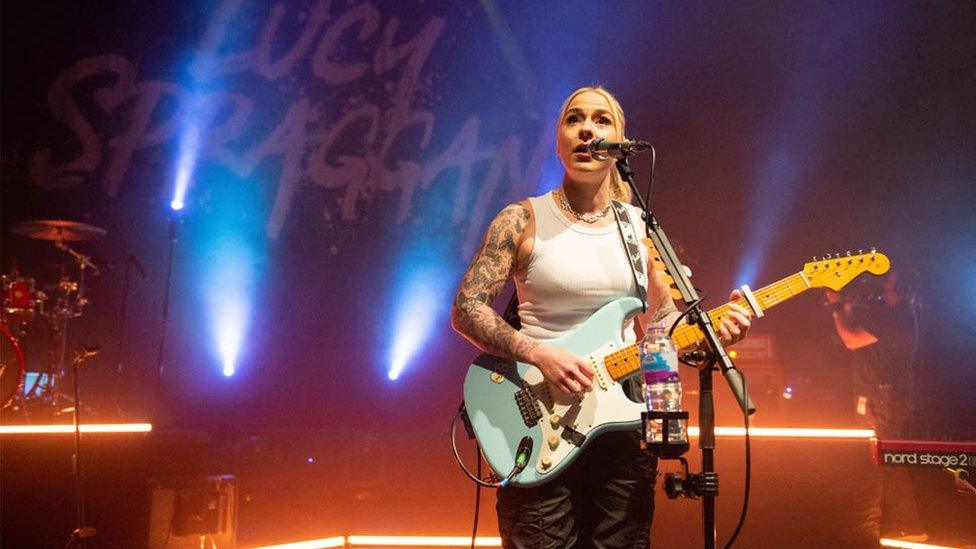
Spraggan's next album, called Balance, will be released in August
She decided to leave the show after week three of the competition. But she wasn't voted out by the public or the show's judges - she realised that mentally she couldn't continue.
To explain why she had left, ITV announced that she was ill. Spraggan says she feels she had to go along with the narrative at the time, but says she is now relieved she can tell the truth.
Spraggan felt like she didn't get enough support in the aftermath of the attack - and in the following years her mental health deteriorated considerably and she abused alcohol and drugs. She has now been sober for nearly four years.
Fremantle said: "Whilst we believed throughout that we were doing our best to support Lucy, as Lucy thinks we could have done more, we must therefore recognise this. For everything Lucy has suffered, we are extremely sorry."
The star is now calling for all production and broadcast companies to better consider employees' and participants' mental health - by setting aside a portion of their budgets to invest in mental wellbeing services.
"I don't want to destroy anything. I want to build a better infrastructure," she says.
"We need these shows, because there's a thriving community of talented people who just don't have the funds and the opportunity to get there."
X Factor's creator, Simon Cowell was not a judge in 2012 because he was in America launching X Factor US. Spraggan says she was ready to give him "a piece of my mind" when he called her, after she had contacted his people to say she was writing her book.
She says he said, "Lucy, before you or I say anything else, the first thing I need to tell you is that I am sorry."
Spraggan reflects: "It makes me emotional because no-one else said sorry. And all it took was this one man to treat me like a human being, 11 years later."
In 2021, Ofcom, the broadcast regulator, announced changes to its Broadcasting Code to better protect people made vulnerable by their participation in TV shows. The changes were introduced after suicides involving contestants from Love Island and The Jeremy Kyle Show in 2018 and 2019.
Earlier this year, the BBC and ITV announced they were joining forces to recruit more registered psychologists to support TV programmes in their duty of care to contributors.
"My voice is extremely inconvenient for a lot of people. I've been petrified of telling the truth, because I'll lose what I have," Spraggan says.
"If I have to be the first person who says 'I'm actually not scared to stand up against you [the industry]', I will. And hopefully it inspires other people to be a little bit braver too."
In a statement, ITV said it had "the deepest compassion for Lucy". It said the production companies, Fremantle and Syco, were primarily responsible for the duty of care towards all of its programme contributors.
But it added it "is committed to having in place… robust oversight procedures, to [ensure] that independent producers employ the correct processes to protect the mental health and welfare of participants".
Related topics
- Published15 July 2023
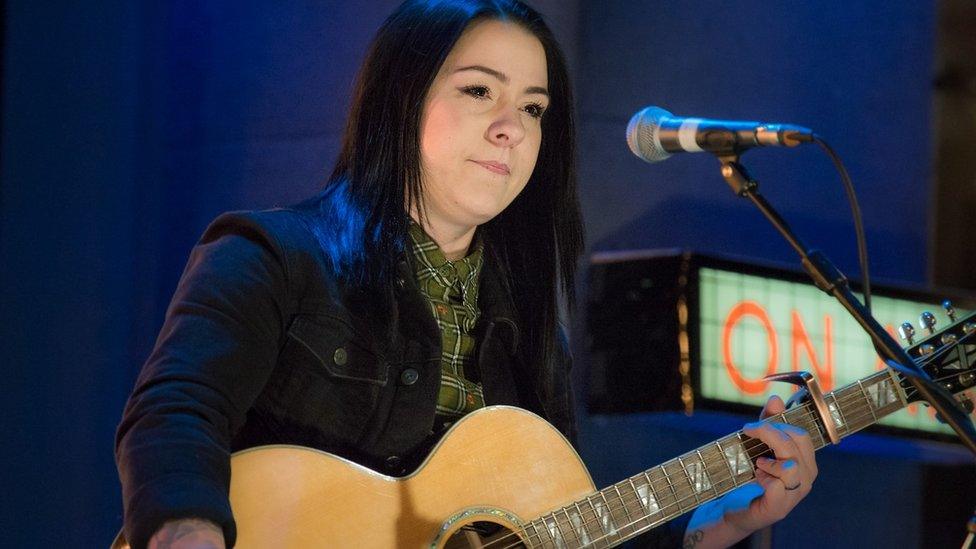
- Published9 June 2023
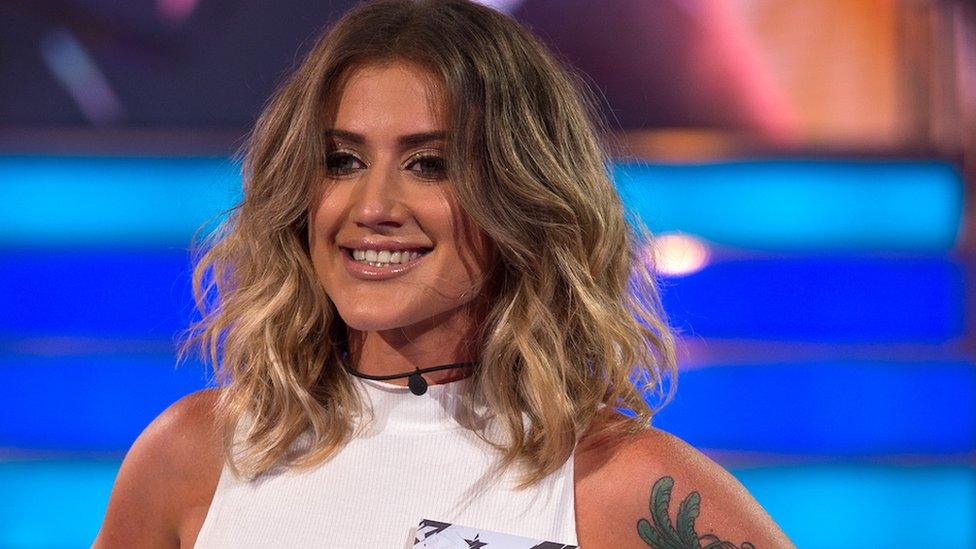
- Published8 February 2023
